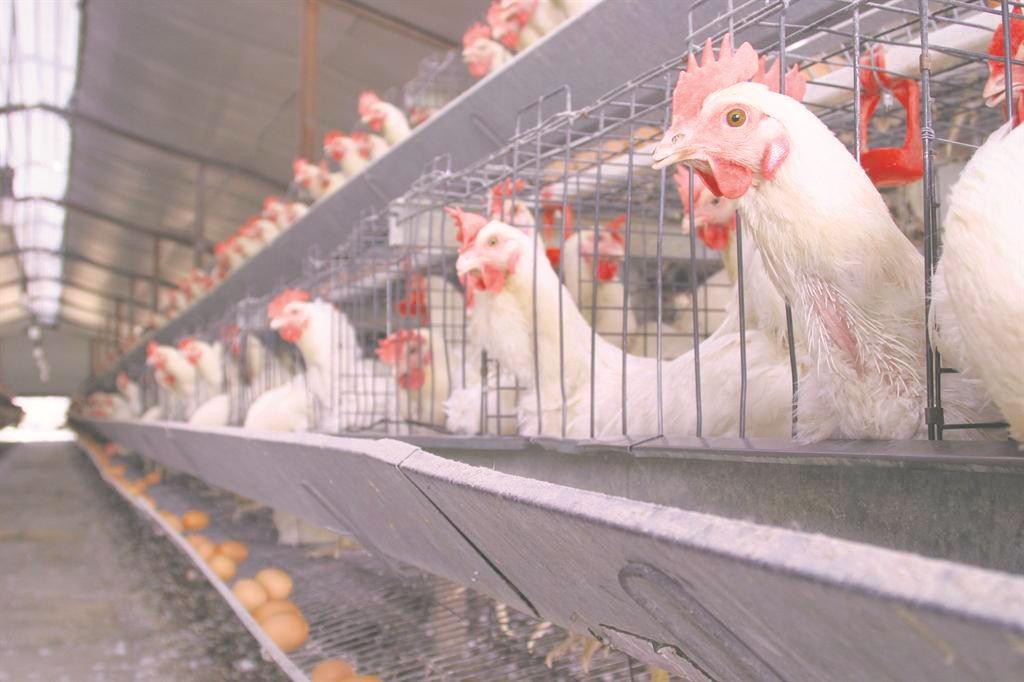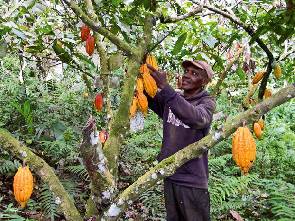 The Ghana Agricultural & Rural Development Journalists Association (GARDJA) says the nation has a long way to go as far as poultry and livestock farming is concerned.
The Ghana Agricultural & Rural Development Journalists Association (GARDJA) says the nation has a long way to go as far as poultry and livestock farming is concerned.
A statement released by the group ahead of Ghana’s 33rd National Farmers’ Day Celebration revealed that Ghana only supplied 10% of her broiler needs whiles the remaining 90% is imported; a situation the group believes should be rectified immediately.
“Our interaction with poultry and livestock farmers reveals that Ghana cannot boast of any serious dairy production, and that all the milk intake, ice creams, and yoghurt are produced from imported milk, despite the existing vast potential in the country”, the statement further revealed.
The journalists believe that paying attention to “the poultry, aquaculture and livestock industry will provide a substantial base for employment and development in Ghana”.
They ask that government gives local poultry farmers a shot in the arm by making available soft loans to these farmers at between zero and ten percent interest rates. They believe the current 35 to 40 percent interest rates hold down the farmers.
They further cited how some interventions towards raising poultry production had failed previously and looked at how it could have boosted Ghana’s economy if those projects had been well managed. “Government in 2014 launched a Broiler Revitalisation Programme with the intention of reducing poultry imports by 40 percent, but the programme failed because local producers had to contend with cheap imports. The sponsor of the project, Boris B’s Farms and Veterinary Supplies Ghana Limited, has over GHȼ10,million cedis of its funds – meant for actual production of broilers (day old chicks, animal feed, veterinary drugs/vaccines and processing charges) – locked up”.
“This project had targeted the production of 5 million broiler birds annually, of which processing and packing of 15,000 broiler birds were to be undertaken daily. This would have provided employment to some of the country’s youth”.
GARDJA wants the government and related stakeholders to come out with a comprehensive agriculture development programme that will respond to all the sectors of the agriculture industry for positive and sustainable growth is the way forward.
Please read GARDJA’s full statement here:
STATEMENT ON THE 33RD NATIONAL FARMERS’ DAY CELEBRATION
It has been 33 years already since Ghana began to celebrate and honour her gallant farmers, fishers and agricultural workers for their hard work in feeding the nation. It is called the National Farmers’ Day, a day that is observed on the first Friday of December to acknowledge the important position farmers and fishers occupy in the nation’s socio-economic development.
The fundamental objective of the celebration is basically to motivate people in the agric sector to improve on productivity in order for Ghana to continuously feed her population, provide raw materials to industries and contribute substantially to the country’s development.
There is no gainsaying that agriculture remains the economic base for majority of the poor in the country and constitutes a key economic sector, providing livelihoods for many.
It has been said time and again that agricultural performance is central in driving socio-economic transformation largely in rural Ghana. The sector provides numerous employment opportunities, and this is why investment in the sector will be worthwhile.
It is against this backdrop that members of the Ghana Agriculture and Rural Development Journalists Association are backing Government’s intention to set up a National Development Bank to purposefully support investment in the agriculture and manufacturing sectors.
We also acknowledge Government’s policy direction and interventions – planting for food and jobs as well as theAgricultural Infrastructure Warehouses and Markets programme – to serve as incentives to get young people into agriculture and ensure improved production.
It is our expectation that the Agriculture Infrastructure and Warehouses and Markets programme will help address the challenges of price volatility and post harvest losses that are due in part to the pressure on farmers to sell their produce immediately after harvesting, where food is in abundance and cheap on the market.
But there are still more to be done for the nation to achieve full value of agriculture, particularly in the area of poultry and livestock. Ghana’s domestic supply of broiler meat is just 10 percent, whiles the remaining 90 percent is imported.
Our interaction with poultry and livestock farmers reveals that Ghana cannot boast of any serious dairy production, and that all the milk intake, ice creams, and yoghurt are produced from imported milk, despite the existing vast potential in the country.
As one industrial player put it, “The poultry, aquaculture and livestock industry will provide a substantial base for employment and development in Ghana, if Government shows commitment in the sector.”
As a nation, we need to make local producers competitive over imported chickens by giving them soft loans – between zero to 10 percent interest rate than the current 35 to 40 percentage rate that continuously holds them down.
Government in 2014 launched a Broiler Revitalisation Programme with the intention of reducing poultry imports by 40 percent, but the programme failed because local producers had to contend with cheap imports. The sponsor of the project, Boris B’s Farms and Veterinary Supplies Ghana Limited, has over GHȼ10,million cedis of its funds – meant for actual production of broilers (day old chicks, animal feed, veterinary drugs/vaccines and processing charges) – locked up.
This project had targeted the production of 5 million broiler birds annually, of which processing and packing of 15,000 broiler birds were to be undertaken daily. This would have provided employment to some of the country’s youth.
For us as journalists, we believe that a comprehensive agriculture development programme that will respond to all the sectors of the agriculture industry for positive and sustainable growth is the way forward.
We need to improve livelihoods and ensure food security, eliminate hunger and reduce poverty through agriculture, improve agriculture research, technology dissemination and adoption, and strengthen capacity for agribusinesses as well as improve access to information on agric strategies and their implementation.
There is also the need for the nation to promote trade-related capacity building to enhance our market access and adopt productivity-enhancing practices in order to achieve targets set.
While we are about it, let us also request Government to consider the idea of constructing 20-kilometre road each year to farming communities, promote consumption of local rice to acceptable level, devote greater part of annual budget to the agriculture sector, whiles our chiefs make farmland available for use.
On this special occasion, we take this opportunity to salute our farmers and fishers for their continuous support to food security and contribution to the economy.
Long live our farmers!
Long live Ghana!!
Signed:
Mr. Ernest Kofi Adu
Secretary General
0243165584
Mr. Richmond Frimpong
President
0268909020
[10:31, 11/29/2017] Richmond Frimpong:





